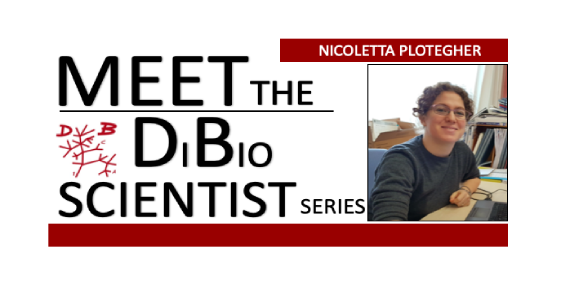
MEET THE DIBIO SCIENTIST SERIES : NICOLETTA PLOTEGHER
Pubblicato il: 16.04.2021 15:14
Nicoletta is a post-doctoral fellow
Can you summarize in few words your research?
My research focuses on the role of lysosomes in maintaining neuronal homeostasis, through the study of different processes as protein aggregation, lipid metabolism and energy and calcium signaling. The mechanisms that regulate these events are tightly connected to lysosomal function and are key to keep neurons healthy, and when defective they lead to the development of neurodegenerative diseases.
What is the most rewarding and the most challenging part of your work?
The most rewarding part of my work is the very moment in which you can say “Eureka!”
This happens both when you perform an experiment which turns out to prove something completely novel, and when you come up with a new hypothesis and you can’t wait to test it! The most challenging part is dealing with failure: it is hard when you apply for a grant and it is not funded, or when you make a big effort to set up an experiment only to find out that it is not able to answer your question.
Tell us your story: what brings you to DiBio?
I first arrived at DiBio in 2010 to pursue my PhD at the Graduate School of Biosciences and Biotechnology. After graduation I worked as postdoc in different places and in 2018 I left my position as Research Associate at UCL (UK) and came back to the Department thanks to a Fondazione Veronesi Postdoctoral Fellowship. The decision was easy, knowing the research environment and the scientific community at DiBio and more in general at UNIPD.
What would you tell your younger self?
Three things: (1) Follow your curiosity and have fun! (2) In life you only have N=1 and no controls, so there is no way to know if you have made the right choice. Once you have decided to do something, do your best and stick to the plan. (3) When there is something you do not like, try to change it!
What’s your favourite “toy” for research – and what can it do?
Microscopes are the ultimate tools! They combine the possibility of acquiring stunning images of microscopic intracellular structures and mechanisms, with the chance of obtaining the quantitative information needed to answer your biological questions. Fiddling with numbers is also something I love (maybe it comes from my original training as a physicist), but I am not sure if numbers can be defined “toys”.
What are your interests outside science?
I love reading books, cooking (and eating) food from all over the world, and travelling. Luckily two out of three can be easily done at home, which is great in this period.





